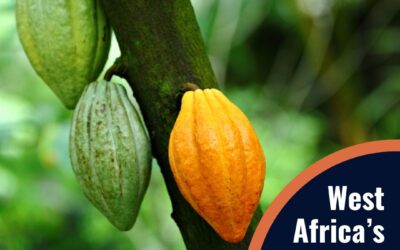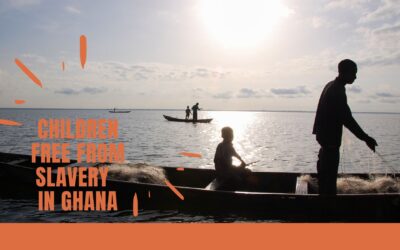FTS is proud to present a special series profiling Ghanaian children who survived fishing slavery on Lake Volta. FTS volunteer Emily Teague traveled to Ghana to photograph them. These young victims were forced to work day and night on dangerous, deadly fishing boats. They were abused, held under threat of violence, unable to walk away. Many children enslaved on Lake Volta are never seen again. These inspiring survivors highlight how our Community-based Model for Freedom really works.
We posted three profiles last week, and today we complete the series with three more remarkable case studies.
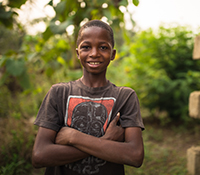 Setsofia’s Story: Modern slavery tears families apart. Setsofia’s bedridden mother sold him to traffickers in a desperate bid for money. He was trapped for five years. His sick mother died, but community outreach and pressure won him his freedom. He says, “It is an obvious dawn of a new day.” Read his story here.
Setsofia’s Story: Modern slavery tears families apart. Setsofia’s bedridden mother sold him to traffickers in a desperate bid for money. He was trapped for five years. His sick mother died, but community outreach and pressure won him his freedom. He says, “It is an obvious dawn of a new day.” Read his story here.
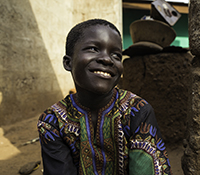 Francis’ Story: Francis’ father was a slavery collaborator. He sold many vulnerable children to traffickers, even his own son. For his crimes, Francis’ father was paid $10 a month. Trapped on Lake Volta, Francis was beaten and abused—he still has a scar on his chin. His mother saved him by taking a stand. Read his full story here.
Francis’ Story: Francis’ father was a slavery collaborator. He sold many vulnerable children to traffickers, even his own son. For his crimes, Francis’ father was paid $10 a month. Trapped on Lake Volta, Francis was beaten and abused—he still has a scar on his chin. His mother saved him by taking a stand. Read his full story here.
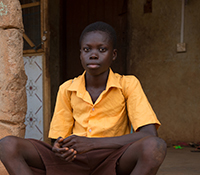 Emmanuel’s Story: Emmanuel was robbed of freedom and an education when his mother sold him into slavery. On one terrifying expedition, Emmanuel nearly drowned when an older slave threw him overboard and left him for dead. But he survived the horrors of slavery—now he is enrolled in school and dreams of a bright future. Read his full story here.
Emmanuel’s Story: Emmanuel was robbed of freedom and an education when his mother sold him into slavery. On one terrifying expedition, Emmanuel nearly drowned when an older slave threw him overboard and left him for dead. But he survived the horrors of slavery—now he is enrolled in school and dreams of a bright future. Read his full story here.
These children were once slaves. Now they have a future in freedom. See all six stories in our Faces of Freedom series on our Ghana webpage.
Support Growing Up Free
The children in our Faces of Freedom series were all freed as part of our Ghanaian initiative “Growing Up Free,” which focuses on children enslaved in the Lake Volta region’s fishing industry and the communities that were once their homes.
“Growing Up Free” supports the formation and implementation of a comprehensive, integrated plan for prevention, rescue, prosecution, rehabilitation, reintegration, education, wrap-around social services, the development of market-based livelihoods for vulnerable families, and the formation of communities united in the determination to drive slavery from their midst.
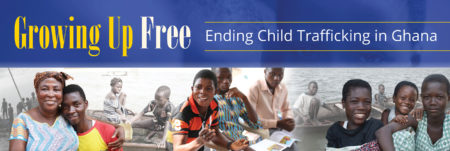
The success of “Growing Up Free” proves that when community members are given a chance to come together and resist traffickers, they do. As an FTS donor, you become part of the community that comes together to support them.

